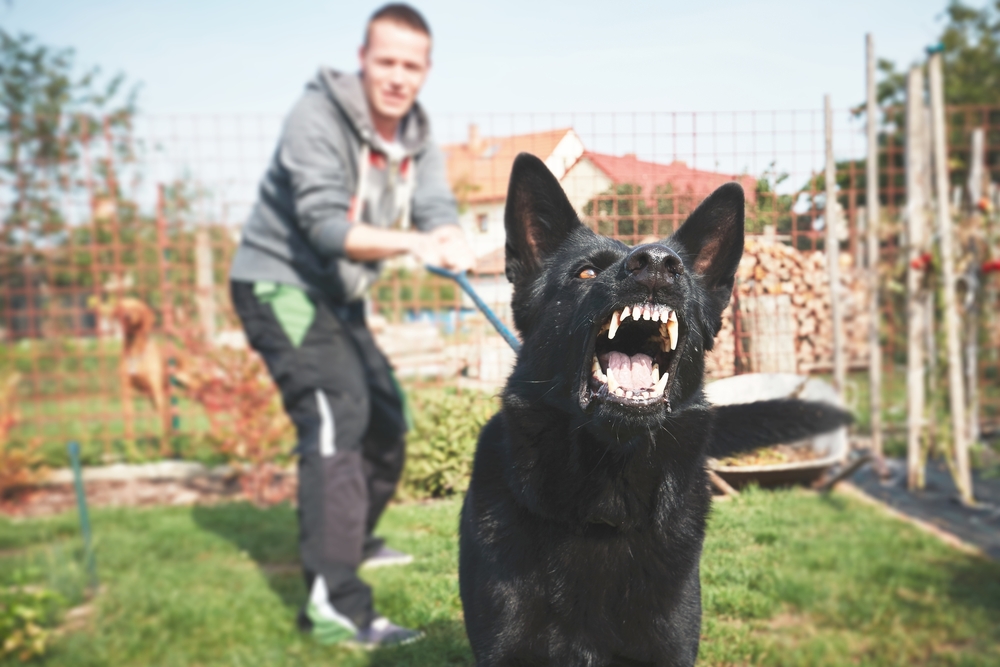Training can benefit your dog by keeping them safe in certain situations, teaching them to handle stressful experiences, and building the trust that will ensure you and your dog form a strong bond. Since the dog training industry is unregulated, finding the right trainer can be difficult. Our team at Star of Texas Veterinary Hospital would like to help you make the right choice by suggesting questions you should ask trainers whom you are considering for your dog.
#1: Do you have any dog training certifications?
Numerous high quality dog training programs are available, and a dog trainer can earn a professional certification that will prove their knowledge and skills. Certifications include:
- Certification Council for Professional Dog Trainers (CPDT) — The council is separate from any paid education course. They offer two certifications—a knowledge assessed option, and a knowledge and skills assessed option. Trainers who hold this certification must have had at least 300 hours of dog training experience over the previous three years, and passed a dog training and animal husbandry test. They also have obtained a reference from another CPDT-KA trainer, and they agree to the council’s standards of practice, code of ethics, and behavior intervention philosophy. To receive the knowledge and skills assessed certificate, trainers must pass an exam showing their training skills via video. To maintain certification status, trainers must complete continued education or retake the exam every three years.
- Karen Pryor Academy Certified Training Partner (KPT CTP) — Dog trainers holding this certification must complete a six-month program that includes online lessons, quizzes, at-home training exercises, in-person workshops, and a final exam.
- Certificate in Training and Counseling (CTC) — Trainers with this certification have completed the Academy for Dog Trainers, an online program that takes about two years.
- Victoria Stilwell Academy for Dog Training and Behavior (VSA-CDT) — VSA-CDT certified trainers have completed courses focused on basic training using positive reinforcement, learning theory, and common behavioral problems.
Behavior consultant certifications are also available that require a higher level of education and experience. These certifications focus on treating behavioral disorders, such as separation anxiety, noise phobias, aggression, and resource guarding.
#2: What is your dog training philosophy?
Dog trainers typically can be classified as classic or positive trainers.
- Classic trainers — These trainers usually use methods that punish a dog’s bad behavior, such as prong collars, shock collars, and alpha rolling.
- Positive trainers — These trainers usually use methods that involve positive reinforcement for good behavior, and withholding attention or treats for inappropriate behavior.
Research shows that physical punishment does not teach dogs to behave appropriately. In fact, these techniques can have adverse effects, including inhibiting learning, increasing fear, and stimulating aggression. Look for a trainer who uses reward-based training with treats, toys, and play, who will typically use terms such as positive reinforcement, science-based methods, and clicker training.
#3: Do you offer a dog training guarantee?
Every dog is different, with different motivations and experiences for their behaviors. Because a dog’s behavior is so variable and unpredictable, no trainer can truthfully guarantee their training program. Most training programs that offer guarantees use punishment techniques to “fix” unwanted behavior. These dogs may no longer exhibit the inappropriate conduct, but the issue has not been addressed, only suppressed.
#4: May I observe a dog training class?
Most dog trainers will allow you to observe a class before you commit to their course. As you watch the class, consider the following:
- Respect — Does the trainer show respect to the students and the dogs? Avoid trainers who use physical force to subdue dogs, as well as those who belittle owners if their dog’s progress is slow.
- Comfort — Do you feel comfortable interacting with the trainer? Do they explain their techniques in an understandable manner? Ensure you feel comfortable enough to question the trainer should something they recommend confuse you.
- Size — Class size should be small, to ensure each dog and owner receives adequate attention, or assistants should be present to offer help.
- Fun — Does the trainer make the class fun and rewarding for the dogs and their owners? If you and your dog enjoy the sessions, the outcome will be more successful.
#5: Do you require vaccinations for your dog training class?
A good trainer will require recommended vaccinations for all the dogs who attend their class. This is especially important for puppy classes, since puppies are vulnerable to serious infections.
#6: How do you handle problem behaviors in dogs?

If your dog exhibits problem behaviors, such as biting, fighting, or destructiveness, a trainer should be willing to recommend help from veterinary professionals, to ensure an underlying physical problem is not to blame.
A dog trainer who answers your questions in an acceptable manner will help ensure you and your dog have a good chance of an enjoyable and successful experience. If you have concerns about your dog’s behavior, and wonder whether a trainer can help, do not hesitate to contact our Fear Free team at Star of Texas Veterinary Hospital, to schedule an appointment and get our advice.






